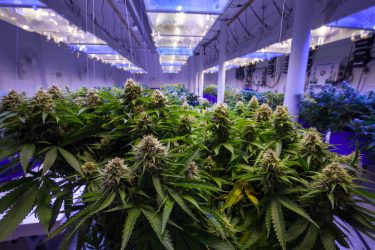Ten recommendations to foster the UK’s medicinal cannabis market
Posted: 28 May 2021 | Hannah Balfour (European Pharmaceutical Review) | 1 comment
In this article, EPR summarises the list of 10 recommendations for the UK Government, published by experts in the medicinal cannabis industry, to ensure the UK capitalises on the opportunities afforded by the market.


The acknowledgment that cannabis has medicinal properties has resulted in it being legalised to varying extents in over 50 countries worldwide. This legitimation has created a global medicinal cannabis industry that was valued at £16.5 billion in 2019 and is expected to reach over £55 billion by 2027.1
However, legalisation has been particularly slow in the UK, with its amended status occurring just two years ago, and ancillary regulation still being established. To this end, Maple Tree Consultants and Mackrell.Solicitors have published 10 recommendations intended for the Government to implement to ensure that the UK does not forego the commercial, industrial and patient benefits of a medicinal cannabis industry.2 The paper is supported by 16 different industry groups, including several political party groups for drug policy reform and various hemp alliances.
Introduction to medicinal cannabis
Medicinal cannabis is the crude drug product isolated from the leaves and flowers of plants from the Cannabis genus that is used as part of the treatment for a specific symptom or disease.3 This product contains hundreds of compounds with varying medicinal benefits – some of the most commonly known being cannabinoids, such as tetrahydrocannabinol (THC) and cannabidiol (CBD), which induce their effect using cannabinoid receptors in the central nervous system (CNS). Formulations of these compounds, and CBD-based products in particular, are currently being developed and approved for a range of indications, from anxiety and epilepsy to chronic pain.
Problems facing the UK’s medicinal cannabis industry
According to the recommendation paper, despite the UK being one of the largest medicinal cannabis producers and exporters in the world, accounting for almost 45 percent of total production in 2016,4 the UK currently imports 100 percent of its medicinal cannabis and the vast majority of CBD products on British shelves come from foreign sources.


Interestingly, said the authors, though some 1.4 million people in the UK could potentially benefit from medicinal cannabis, in the two years since legalisation, there have been only three National Health Service (NHS) prescriptions for full-spectrum cannabis products and only about 6,000 in the private sector – the latter being too expensive for many potential recipients.
Additionally, the paper suggests that the current restrictive regulatory framework surrounding the medicinal cannabis industry in the UK means it favours large pharmaceutical companies who have the resources to adhere to them and leaves the market subject to a “pharmaceutical monopoly”. This is already evident, with production within the UK confined to one main grower (British Sugar) and one primary producer (GW Pharmaceuticals).
The paper, in its entirety, summarises various holes in the UK Government’s policies on medicinal cannabis, and details how the emergence of a legal medicinal cannabis industry would combat these issues and stimulate the UK economy post-pandemic and post-Brexit.
The ten recommendations
The overarching proposal is for the UK Government to establish a new Office for Medicinal Cannabis to bring together the various regulatory responsibilities and oversee the implementation of the 10 recommendations. This approach has been used in other jurisdictions, such as the Netherlands.
The 10 recommendations are as follows:
1. Reform the high-THC cultivation license system to make the process simpler and faster.
- The authors state that the Home Office and Medicines and Healthcare products Regulatory Agency (MHRA) should collaborate to produce a simple guide for those applying for high-THC cultivation licenses and streamline and co-ordinate the application process
2. Allow the cultivation of hemp flowers to extract CBD under an industrial hemp (low-THC) license to enable farmers and investors to get a better return on hemp growing.
- Industrial hemp is a strain of the cannabis plant that contains CBD and only traces of THC and, as a result, is not associated with the black market; instead, its stalks are used in industries such as clothing and upholstery. According to the report, the current Home Office industrial hemp license demands that the flowers and leaves from industrial hemp are destroyed, these are the parts of the plant that contain the most CBD.
- Thus, the writers believe reforming the licences to allow hemp growers to extract CBD from the plant would radically transform the supply chain for medicinal cannabis, ensuring that the UK is self-reliant and has a thriving industry that would support thousands of jobs. Increased domestic production would also enhance patient access, as prescriptions would become cheaper.


3. Increase the THC limit for approved seeds from 0.2 percent to one percent to align with international competition and allow far greater variety of cultivars.
4. Amend the Human Medicines Regulations 2012 (UK legislation) to allow CBD suppliers to make justifiable wellness claims; thus recognising the reality that many hundreds of thousands of people use hemp-derived CBD for wellness and health purposes.
5. Ensure that the Financial Conduct Authority (FCA)’s guidance on allowing cannabis-related companies to float on the London Stock Exchange (LSE) continues unencumbered.
- Attracting, enticing and encouraging investment in the UK medicinal cannabis market could reinvigorate the UK economy post-Brexit and post-COVID-19, says the report. The FCA’s recent decision to allow cannabis-related businesses to float on the LSE will allow larger corporations to enter the space, with the knowledge and means to serve industry needs.
6. Reform the Proceeds of Crime Act 2002 (POCA) to ensure it is fit for the UK’s legal medicinal cannabis market.
- The POCA was not written with the modern medicinal cannabis sector in mind, state the authors. They continue that, consequently, outside investors with the wherewithal, means and understanding to progress the UK medicinal cannabis market are being put off by the prospect of criminal prosecution. This is because, under POCA, proceeds from overseas medicinal cannabis business may constitute “criminal property” even if fully legal and authorised in the foreign state.
7. Ensure the application of the Novel Food regulations to cannabis-related medicines does not impinge upon smaller market participants. Consider making hemp extracts produced using food-safe techniques and designed for food supplements exempt from Novel Foods regulations and removing them from the Misuse of Drugs Act.
- CBD products have recently fallen under the guidance of “novel foods” by the UK Food Standards Agency, despite being in use, though not necessarily medicinally, for thousands of years, wrote the authors. This means that CBD products not on sale prior to 13 February 2020 cannot be on sale without a validated Novel Food application.
- Though there was a grace period until 31 March 2021 for companies to apply, the report states that it is expected to take a minimum of 18 months to gain authorisation and cost at least £300,000 to comply with all the necessary product testing. As such, the authors argue that the application of Novel Foods legislation will have a significant impact on smaller market participants, which are often focused on niche aspects of the industry, and potentially shut them out of the market.
8. Re-assess the National Institute for Health and Care Excellence (NICE) guidelines using a new panel that constitutes academics, medical practitioners and cannabis experts from both the UK and countries where cannabis is accepted as a medicine.


- NICE guidelines are the most restrictive aspect of medicinal cannabis regulation at present, according to the authors. This is because they “practically prohibit” the use of unlicensed medicines and are written as though cannabis is a pharmaceutical product, rather than a botanical product, heavily relying on evidence from double-blind placebo-controlled studies and ignoring real-world evidence (case studies and observational data).
- The writers stated that the NICE Guidelines have far reaching implications for the commercial viability of the medicinal cannabis market. The significant barriers currently in place will continue to restrict patient access to medicinal cannabis and stifle the emergence of new suppliers and a thriving market.
9. Allow General Practitioners (GPs) to be primary prescribers of medicinal cannabis.
- Currently only practitioners on the General Medical Council (GMC) specialist register can initiate a medicinal cannabis prescription; this excludes half of the UK’s doctors, ie, GPs. Since it is likely that GPs will make knowledgeable prescribers, the authors of the report posit that they should be given the opportunity to prescribe cannabis-based medicinal products (CBMPs).
10. Conduct or contract a thorough health economic analysis of the cost of introducing medicinal cannabis and hemp flowering tops in the UK.
- The cheapest cannabis can be produced for approximately 10 US cents per gram of dried flower; given this, the average UK prescription could cost around $3 per month. However, through the Twenty 21 programme run by Drug Science, dried flower can be prescribed for around £7 per gram – capped at £150 per month. As such, a comprehensive health economic analysis of the financial impact of providing medicinal cannabis widely in the UK through the NHS is urgently required.
- The authors suggest that the analysis should take account of various offsets from savings made in other drug costs, such as fewer opioid prescriptions (in the US, lowering opioid prescriptions by 29 percent resulted in a 29 percent Medicaid saving, representing several millions of dollars), less anticonvulsants for epilepsy and anti-anxiety drugs.
- Additionally, there could be savings from the reduced need for associated therapies, such as physiotherapy, and fewer emergency admissions for patients with conditions like epilepsy. They also argue that it could reduce carer costs and allow some people to return to work.
Conclusion
The authors concluded that many of the recommendations aim to combat the current regulatory environment surrounding medicinal cannabis; as, in its current state, they believe legislation, licensing, health decisions, evidence assessment, product approval and so forth, are spread across too many government departments, only serving to complicate the process. According to the authors, introducing an Office for Medicinal Cannabis would significantly simplify the industry in the UK and, with the suggested changes to legislation, assist an industry with huge potential economic benefit.
References
- Beadle A. Key Insights from The Global Cannabis Report | Prohibition Partners [Internet]. Prohibition Partners. 2021 [cited 7 May 2021]. Available from: https://prohibitionpartners.com/2019/11/07/key-insights-from-the-global-cannabis-report/
- Barnes M, Deacon H, Carroll P, et al. UK Medical Cannabis & CBD Market Discussion Paper: Ten Recommendations for Government [Internet]. Maple Tree Consultants and Solicitors; 2021 [cited 7 May 2021]. Available from: https://www.mapletreeconsultants.co.uk/ten…
- Ware M. Medical cannabis. Encyclopaedia Britannica, 23 Jul. 2020, https://www.britannica.com/science/medical-cannabis. Accessed 7 May 2021.
- Lloyd J. The CBD market [Internet]. Savills.co.uk. 2020 [cited 7 May 2021]. Available from: https://www.savills.co.uk/research_articles/229130/296363-0#summary
Related topics
Cannabinoids, Drug Supply Chain, Herbal & Plant-Based Medicines, Industry Insight, Medical Marijuana, Regulation & Legislation, Supply Chain, Therapeutics
Related organisations
Financial Conduct Authority (FCA), General Medical Council (GMC), GW Pharmaceuticals, Mackrell.Solicitors, Maple Tree Consultants, UK Food Standards Agency, UK Government, UK Medicines and Healthcare products Regulatory Agency (MHRA), UK National Health Service (NHS), UK National Institute for Health and Care Excellence (NICE)
Related drugs
cannabidiol (CBD), Cannabinoids, medicinal cannabis, tetrahydrocannabinol (THC)










Interesting article and perspectives. It’s worth noting that MHRA and UK Home Office have established a joint 5-step process in recognition of the need to reform the licensing process; hopefully this will address the author’s first recommendation.